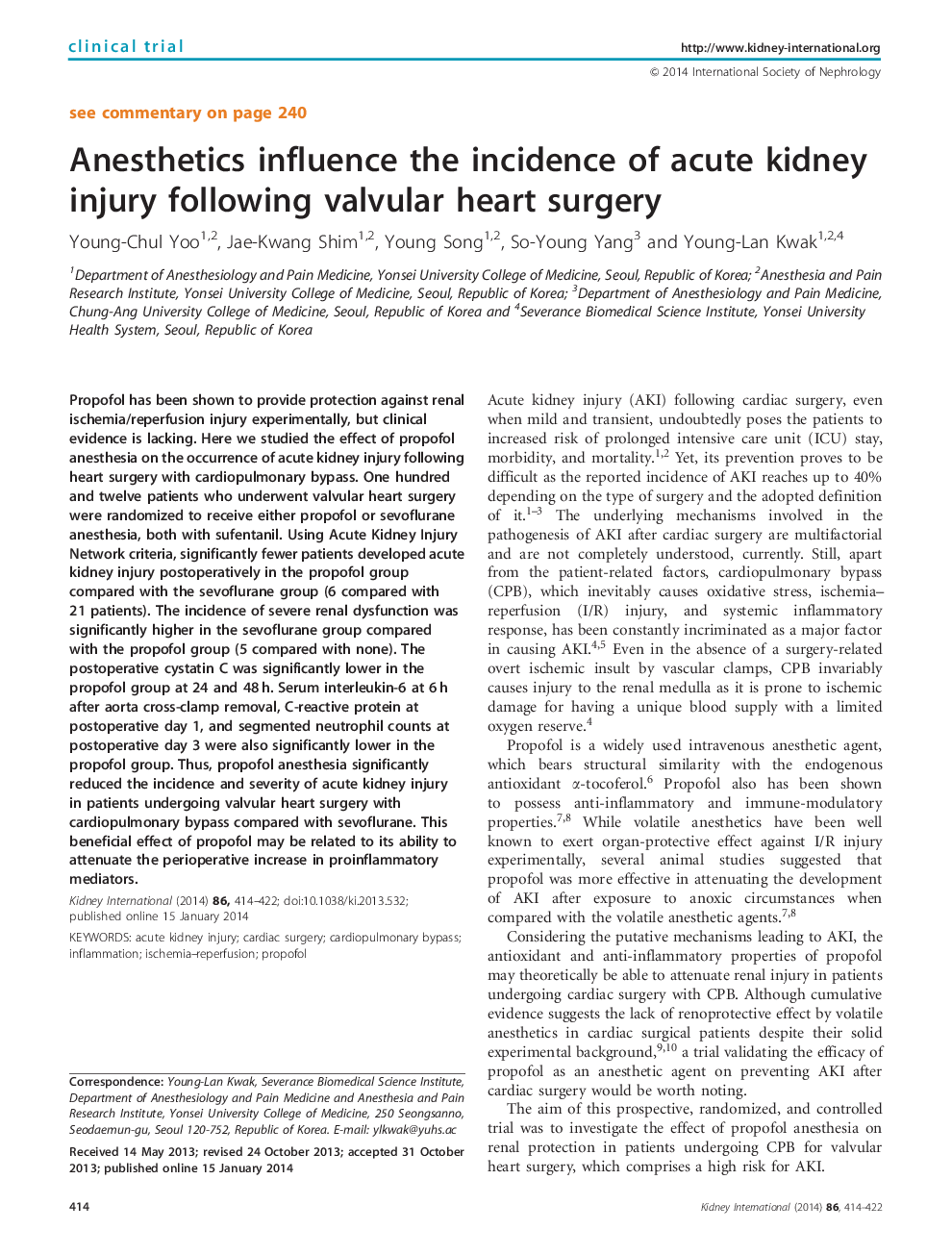| Article ID | Journal | Published Year | Pages | File Type |
|---|---|---|---|---|
| 6164438 | Kidney International | 2014 | 9 Pages |
Abstract
Propofol has been shown to provide protection against renal ischemia/reperfusion injury experimentally, but clinical evidence is lacking. Here we studied the effect of propofol anesthesia on the occurrence of acute kidney injury following heart surgery with cardiopulmonary bypass. One hundred and twelve patients who underwent valvular heart surgery were randomized to receive either propofol or sevoflurane anesthesia, both with sufentanil. Using Acute Kidney Injury Network criteria, significantly fewer patients developed acute kidney injury postoperatively in the propofol group compared with the sevoflurane group (6 compared with 21 patients). The incidence of severe renal dysfunction was significantly higher in the sevoflurane group compared with the propofol group (5 compared with none). The postoperative cystatin C was significantly lower in the propofol group at 24 and 48Â h. Serum interleukin-6 at 6Â h after aorta cross-clamp removal, C-reactive protein at postoperative day 1, and segmented neutrophil counts at postoperative day 3 were also significantly lower in the propofol group. Thus, propofol anesthesia significantly reduced the incidence and severity of acute kidney injury in patients undergoing valvular heart surgery with cardiopulmonary bypass compared with sevoflurane. This beneficial effect of propofol may be related to its ability to attenuate the perioperative increase in proinflammatory mediators.
Keywords
Related Topics
Health Sciences
Medicine and Dentistry
Nephrology
Authors
Young-Chul Yoo, Jae-Kwang Shim, Young Song, So-Young Yang, Young-Lan Kwak,
